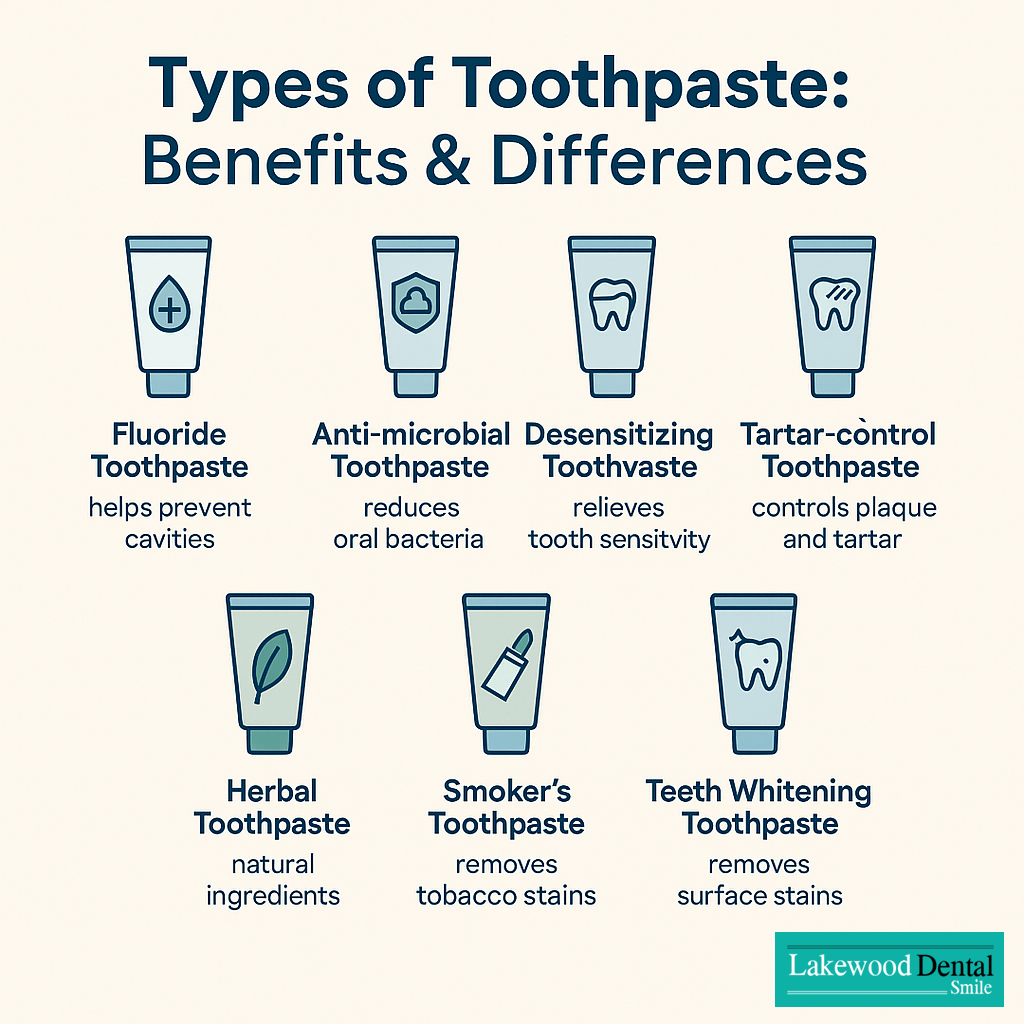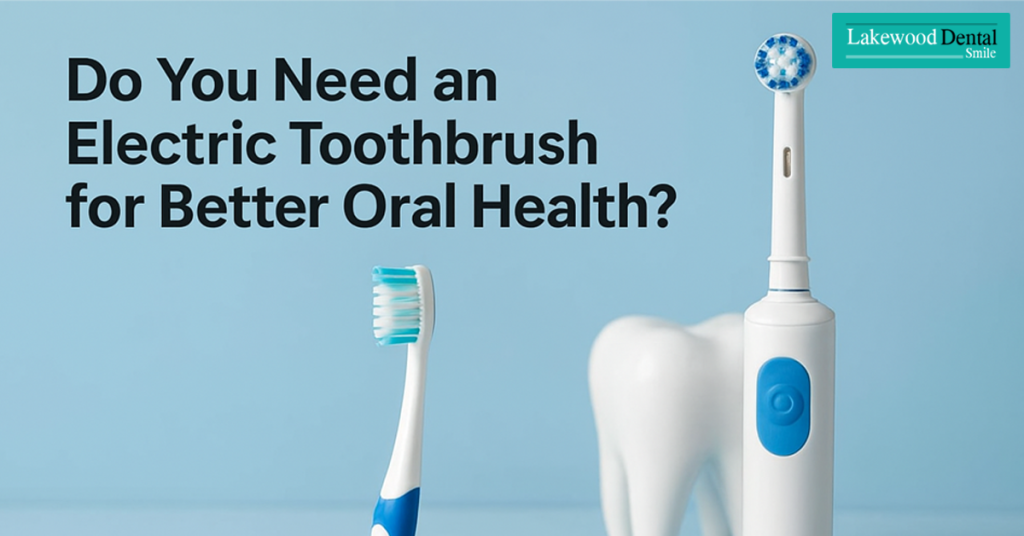Choosing the right toothpaste is more than just picking a flavor you like. Types of toothpaste vary in ingredients, benefits, and purpose, and selecting the one that suits your needs can protect your enamel, prevent cavities, and address specific dental concerns. Choosing the right toothpaste ensures that your daily brushing routine provides maximum protection and keeps your teeth healthy for years. With so many options available on supermarket shelves, it can feel overwhelming, but understanding the differences makes it easier to make an informed decision.
Understanding the different types of toothpaste can help you select one that meets your unique oral health needs, from cavity protection to sensitivity relief.

Fluoride Toothpaste
Fluoride is one of the most important ingredients in toothpaste. It strengthens enamel, prevents tooth decay, and reduces the acid produced by bacteria on your teeth. Most commercial toothpaste contains fluoride, which is essential for both children and adults. Use it daily to maintain strong teeth, reduce cavities, and protect your enamel from everyday acids. Fluoride toothpaste is widely recommended by dentists, and it works best when combined with proper brushing and flossing. Regular use also helps prevent small cavities from turning into larger dental issues over time.
Anti-Microbial Toothpaste
Anti-microbial toothpaste is excellent for people prone to gum disease or bacterial infections. It reduces harmful oral bacteria and helps prevent the progression of gum disease while offering anti-cavity and sensitivity benefits. Regular use can maintain healthier gums and reduce inflammation, making brushing more effective. It is particularly helpful for individuals with a history of gingivitis. Pairing anti-microbial toothpaste with flossing and mouthwash can further enhance oral hygiene and protect your smile.
Desensitizing Toothpaste
For those with sensitive teeth, desensitizing toothpaste provides relief from discomfort caused by hot, cold, sweet, or acidic foods and drinks. Ingredients like potassium nitrate and sodium fluoride help reduce sensitivity over time. Consistent use can gradually make teeth less reactive and allow you to enjoy meals comfortably. Using a soft-bristled toothbrush along with this toothpaste can further protect sensitive areas. Some desensitizing toothpastes also include fluoride, offering additional cavity protection. When exploring the types of toothpaste, desensitizing toothpaste provides long-term comfort and protection for sensitive teeth.
Tartar-Control Toothpaste
Tartar-control toothpaste is designed to prevent plaque buildup that hardens into tartar. Plaque and tartar contribute to gum disease and cavities if left untreated. Using tartar-control toothpaste regularly helps keep teeth cleaner and gums healthier. It is especially beneficial for people prone to tartar buildup and can complement professional dental cleanings. Tartar-control toothpaste is an essential choice among the types of toothpaste for people prone to plaque buildup.
Herbal Toothpaste
Herbal toothpaste is ideal for those seeking a natural alternative. Many herbal options do not contain fluoride, so it is essential to consider your oral health needs. Herbal toothpaste can help maintain oral hygiene naturally, but fluoride toothpaste is generally recommended to strengthen enamel and prevent decay. Herbal toothpaste may also include ingredients like neem or clove, which have antimicrobial properties. Herbal toothpaste offers a natural approach, but knowing the differences among types of toothpaste ensures you don’t compromise enamel protection.
Children’s Toothpaste
Children’s toothpaste contains lower fluoride levels to prevent accidental ingestion and has milder abrasives for sensitive young teeth. It encourages proper brushing habits while protecting developing teeth. Fun flavors can make brushing enjoyable, helping children maintain consistent oral hygiene from an early age. Parents should understand the unique features in the types of toothpaste designed for children to build lifelong oral care habits.
Teeth Whitening Toothpaste
Teeth whitening toothpaste contains mild abrasives and cleaning agents to remove surface stains caused by coffee, tea, or cola. When used daily along with proper brushing, it helps restore brightness to your smile safely. For optimal results, pair it with professional cleanings and avoid overuse to prevent enamel damage.
Conclusion
Toothpaste is an essential part of effective brushing, but its benefits increase when you select one suited to your specific needs. Always consult your dentist for personalized recommendations, and combine your toothpaste choice with proper brushing, flossing, and regular checkups for maximum oral health. If you’re in Dearborn, the professionals at Lakewood Dental Smile can guide you in choosing the best toothpaste for your teeth and gums.




